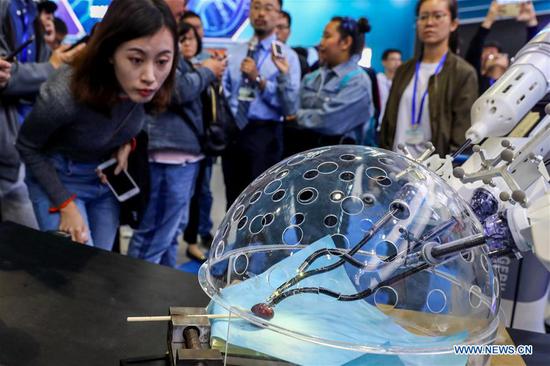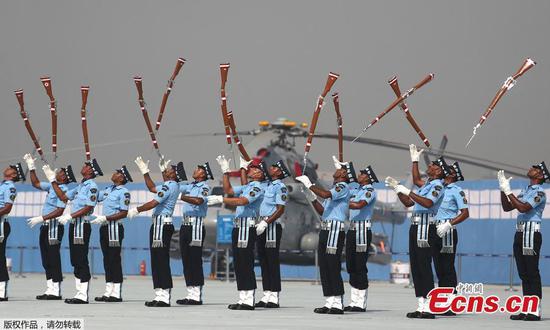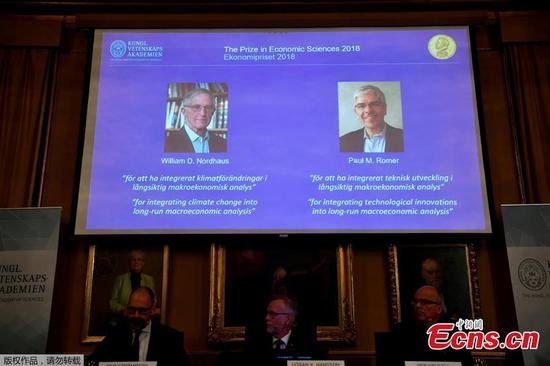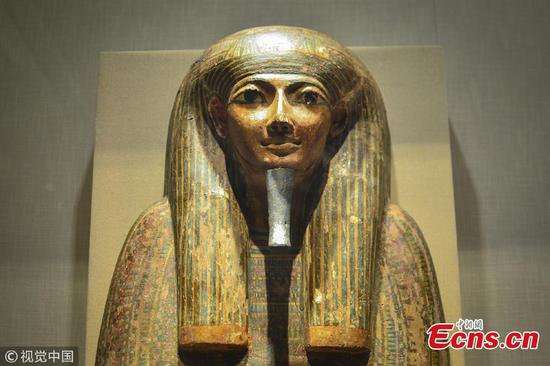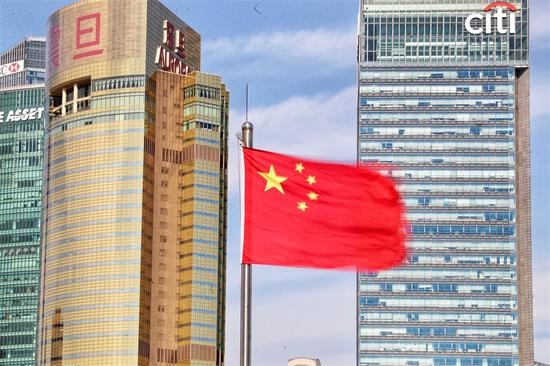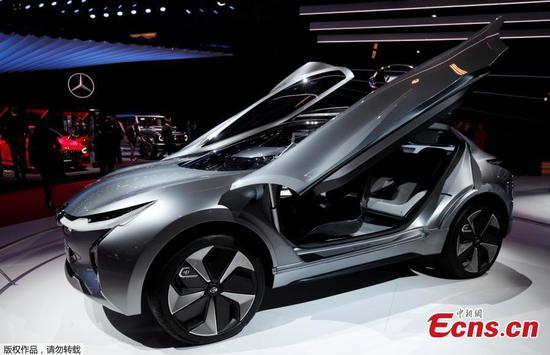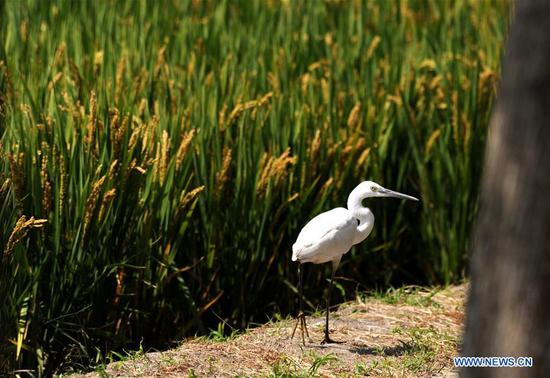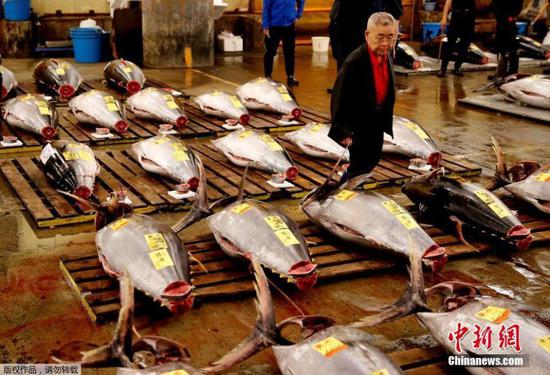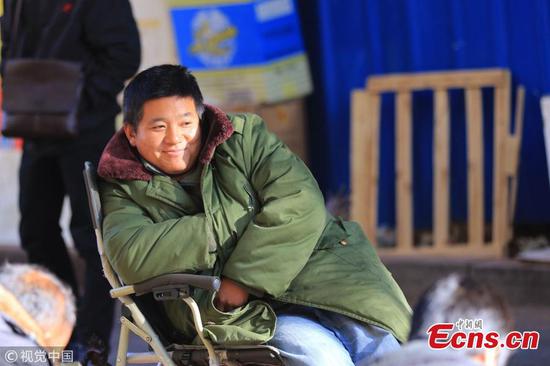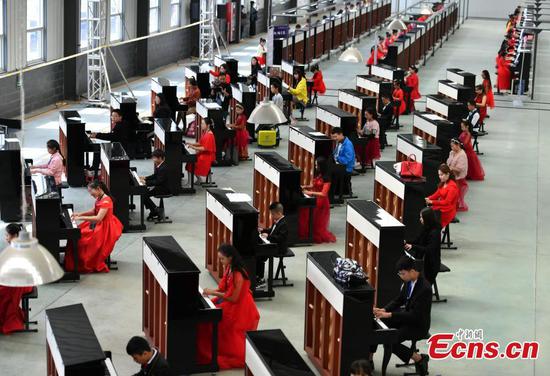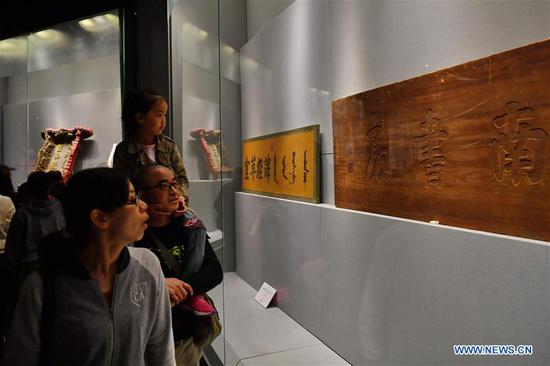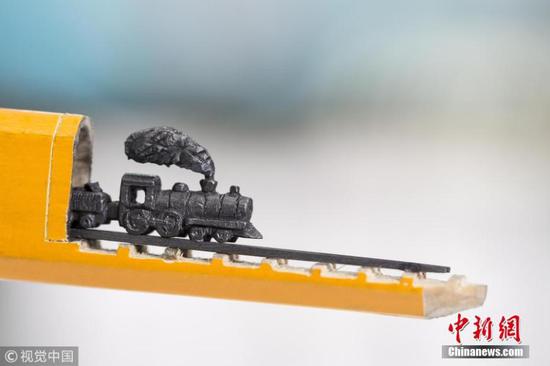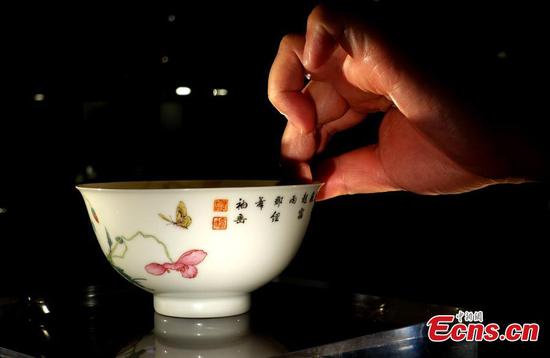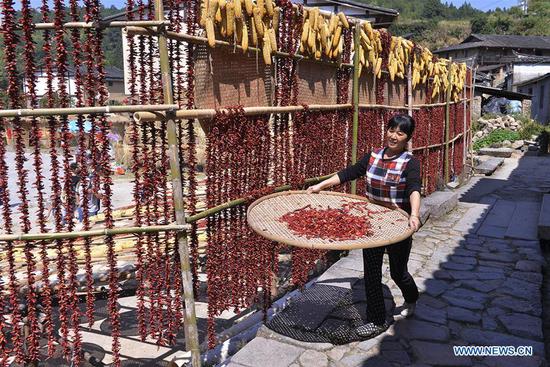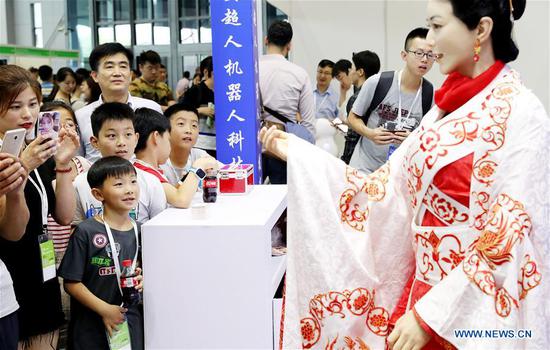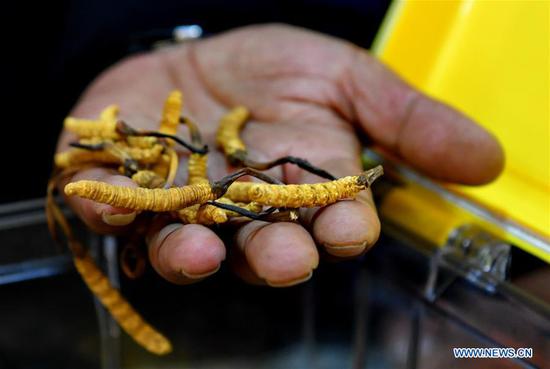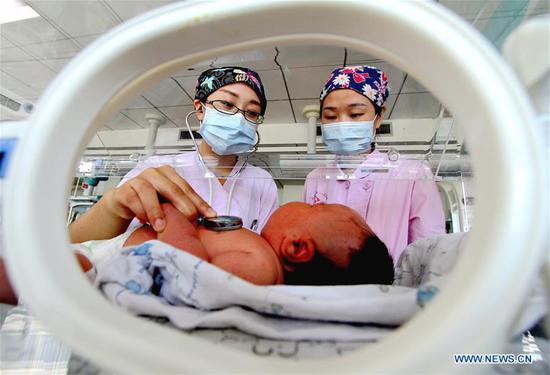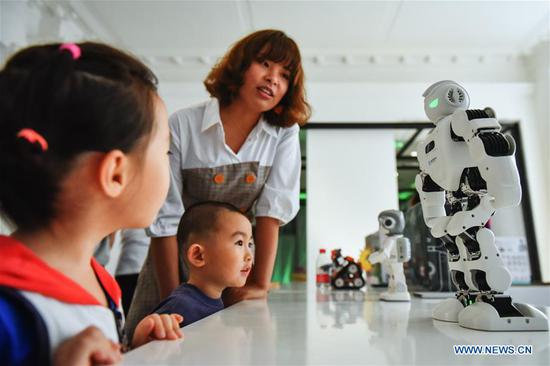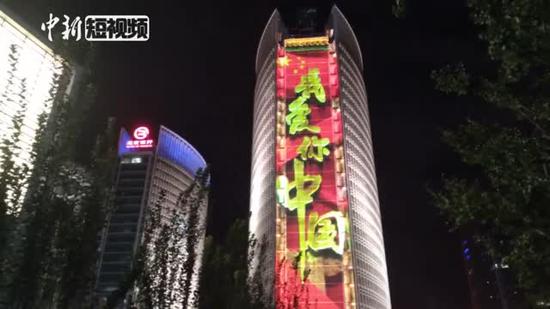Editor's note: The following is an edited translation, from China Plus, of a commentary from the Chinese-language "Commentaries on International Affairs."
In the "Golden Week" Chinese National Day holiday that has just ended, Miss Shen, who stayed in Beijing, ordered a smart sweeping robot to liberate herself from cleaning rooms, giving her more time to help her child study.
Ms. Peng, who was traveling to Hubei, made visiting the Hubei Provincial museum and the ancient Yellow Crane Tower the highlights of her cultural journey. This is a microcosm of what National Day "Golden Week" consumers did for China's economy.
Stats from the Ministry of Culture and Tourism show that during the National Day holiday, 726 million people traveled throughout China, an increase of 9.43 percent over the same period of last year.
Domestic tourism revenues amounted to 599.08 billion yuan, an increase of 9.04 percent year-on-year. The number of outbound tourists reached 7 million. China has been the largest source country for outbound travel for the last 5 years.
Compared with previous years, this year's National Day holiday has seen consumers becoming increasingly choosy. Sightseers who used to be satisfied with the practice of "falling asleep on a tourist bus and taking pictures after getting off the bus" now participate in a variety of customized and private tours.
Tourists who used to be more interested in sightseeing, fancy foods and buying frenzies are now more willing to spend money on a more unique experience.
Travelers who used to carry cash abroad are now using their mobile phones as payment tools around the world. Chinese people are ushering in an era of consumption upgrade that attaches more importance to quality, experience and personality.
Upgrading the consumption model needs to be supported by quality products and services. In the past, Chinese tourists went abroad to buy various high-end goods such as rice cookers and cosmetics. This is because of the relatively poor quality of these types of products in China at the time.
But since the start of supply-side structural reforms in 2015, the industrial restructuring of China's consumer goods has continued to accelerate. Since the tariffs on 1,449 imported items have reduced this July, Chinese people have more choices for high-quality consumption.
Data from Chinese e-commerce platforms show that during this year's National Day holiday, consumption in China has become more high-end, intelligent and personalized.
Large-screen color TVs, integrated washing and drying machines, smart translation machines, sweeping robots and automated robot companions for children were some of the most popular items purchased during the holiday.
As an ancient Chinese says goes: "When the people have enough food and clothing, they will know what etiquette is." During the National Day holiday, museums, art galleries, libraries and public cultural venues became popular attractions.
This suggests Chinese people's consumption is shifting from the pursuit of tangible material goods to more service-oriented products, from material enjoyment to spiritual and cultural pursuits.
In September, the National Bureau of Statistics released a survey showing the Consumer Confidence Index remains in an optimistic range, as it has for three consecutive quarters.
The shift in sales patterns during the "Golden Week" is evidence of this confidence. More importantly, as a window into the overall Chinese economy, the National Day sales trend shows an overall confidence in China's economic prospects.
The China Economic Update recently released by the World Bank points out that the Chinese economy is still maintaining a strong developmental trend.
FTSE Russell, a world-renowned index firm, recently announced that it will start to include China A-Shares in its emerging market index in June next year after a similar move by global index compiler MSCI, which shows that despite the current Sino-US trade frictions, international investors still have confidence in the Chinese economy.
China has, even more, to be bullish about. From November 1, China will implement tax reductions on additional 1,585 items, covering a wide variety of things people need in their daily lives.
On November 5, the first ever International Import Expo will open in Shanghai, which is due to attract more than 150,000 domestic and foreign buyers from 130 countries and regions. At the same time, the Chinese government's latest round of fee and tax reductions are also being planned.
These are going to help people in China pursue a better life, and bolster the high-quality development of China's economy.
No matter who you might be, you couldn't afford to miss out on a huge market with a population of nearly 1.4 billion and a middle-income group of 400 million.









